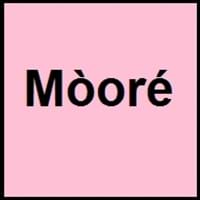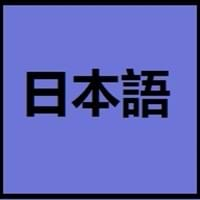Mossi and Japanese
Countries
Burkina Faso
Japan
National Language
Benin, Burkina Faso, Ghana, Ivory coast, Mali, Togo
Japan
Second Language
Not spoken in any of the countries
Not spoken in any of the countries
Speaking Continents
Asia
Asia, Pacific
Minority Language
Not spoken in any of the countries
Palau
Regulated By
Not Available
Agency for Cultural Affairs (文化庁) at the Ministry of Education
Interesting Facts
- Mossi languages use pitch to distinguish meanings.
- Mossi is the 2nd largest ethnic group in Ivory Coast.
- In Japanese Language, there are 4 different ways to address people: kun, chan, san and sama.
- There are many words in Japanese language which end with vowel letter, which determines the structure and rhythm of Japanese.
Similar To
Dagbani Language
Korean Language
Derived From
Not Available
Not Available
Alphabets in
Mossi-Alphabets.jpg#200
Japanese-Alphabets.jpg#200
Writing Direction
Not Available
Left-To-Right, Horizontal, Top-To-Bottom
Hello
Kia ora
こんにちは (Kon'nichiwa)
Thank You
Laafi bala
ありがとう (Arigatō)
How Are You?
Laafi beme ?
お元気ですか (O genki desu ka?)
Good Night
Ne y yungo
おやすみなさい (Oyasuminasai)
Good Evening
ne y zabre
こんばんは (Konbanwa)
Good Afternoon
Kia ora
こんにちは (Konnichiwa!)
Good Morning
Ne y yibeogo
おはよう (Ohayō)
Please
gafare
お願いします (Onegaishimasu)
Sorry
gafare
ごめんなさい (Gomen'nasai)
Bye
Wend na kon-d nindaare
さようなら (Sayōnara)
I Love You
Kei te aroha au ki a koe
愛しています (Aishiteimasu)
Excuse Me
Y gafare
すみません (Sumimasen)
Dialect 1
Ouapadoupou
Sanuki
Where They Speak
Burkina Faso
Kagawa
How Many People Speak
Not Available
Where They Speak
Burkina Faso
Fukuoka
Dialect 3
Taolende
Kansai
Where They Speak
Burkina Faso
kansai
Alternative Names
Not Available
Not Available
French Name
moré
japonais
German Name
Mossi-Sprache
Japanisch
Pronunciation
Not Available
/nihoɴɡo/: [nihõŋɡo], [nihõŋŋo]
Ethnicity
Mossi
Japanese (Yamato)
Origin
Not available
1185
Language Family
Niger-Congo Family
Japonic Family
Subgroup
Western Sudanic
Not Available
Branch
Gur (Voltaic)
Not Available
Early Forms
No early forms
Old Japanese, Early Middle Japanese, Late Middle Japanese and Early Modern Japanese
Standard Forms
Mossi
Japanese
Language Position
Not Available
Signed Forms
Not Available
Signed Japanese
Scope
Individual
Individual
ISO 639 1
No data Available
ja
ISO 639 6
Not Available
Not Available
Glottocode
moss1236
nucl1643
Linguasphere
No data Available
45-CAA-a
Language Type
Living
Living
Language Linguistic Typology
Not Available
Subject-Object-Verb
Language Morphological Typology
Not Available
Agglutinative, Synthetic
All Mossi and Japanese Dialects
Most languages have dialects where each dialect differ from other dialect with respect to grammar and vocabulary. Here you will get to know all Mossi and Japanese dialects. Various dialects of Mossi and Japanese language differ in their pronunciations and words. Dialects of Mossi are spoken in different Mossi Speaking Countries whereas Japanese Dialects are spoken in different Japanese speaking countries. Also the number of people speaking Mossi vs Japanese Dialects varies from few thousands to many millions. Some of the Mossi dialects include: Ouapadoupou, Saremde. Japanese dialects include: Sanuki , Hakata. Also learn about dialects in South American Languages and North American Languages.
Mossi and Japanese Speaking population
Mossi and Japanese speaking population is one of the factors based on which Mossi and Japanese languages can be compared. The total count of Mossi and Japanese Speaking population in percentage is also given. The percentage of people speaking Mossi language is 0.11 % whereas the percentage of people speaking Japanese language is 1.90 %. When we compare the speaking population of any two languages we get to know which of two languages is more popular. Find more details about how many people speak Mossi and Japanese on Mossi vs Japanese where you will get native speakers, speaking population in percentage and native names.
Mossi and Japanese Language Codes
Mossi and Japanese language codes are used in those applications where using language names are tedious. Mossi and Japanese Language Codes include all the international language codes, glottocodes and linguasphere.





